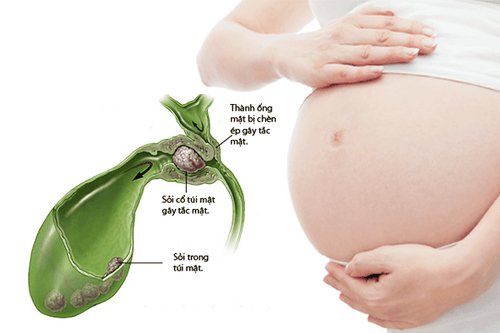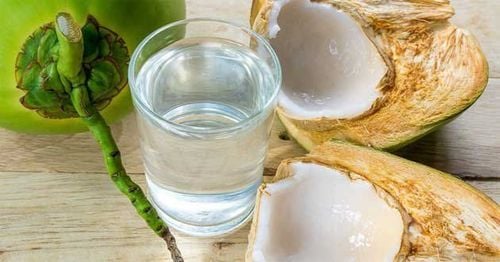Authored by Phan Nguyen Thanh Binh, MD, PhD – Head of Nutrition and Dietetics Department, Vinmec Central Park International Hospital
Gastric and duodenal ulcers are among the most common gastrointestinal disorders, with an alarming rise in prevalence in Vietnam. Approximately 70% of the population is estimated to carry risk factors for these conditions. If left untreated, they can lead to severe digestive dysfunction and life-threatening complications such as gastrointestinal bleeding, gastric perforation, and pyloric stenosis. A balanced diet is essential for symptom management, improving digestive function, and overall nutritional well-being.
1. Recognizing the Symptoms of Gastric and Duodenal Ulcers
Epigastric pain is the hallmark symptom caused by mucosal damage and further irritation from stomach acid. Pain initially worsens when the stomach is empty or overly full but may later occur unpredictably with increased severity and frequency.
- Bloating and indigestion: Early signs often overlooked by patients.
- Acid reflux or belching
- Nausea and vomiting
- Loss of appetite and weight loss
- Vomiting blood or coffee ground emesis (ranging from bright red to black), passing black stools, dizziness, or fainting, are indicators of severe gastrointestinal bleeding.
2. Causes of Gastric and Duodenal Ulcers
Ulcers develop from an imbalance between aggressive factors (such as high gastric acid levels) and protective mechanisms (such as the integrity of the gastric mucosa). Key contributing factors include:
- Infections: Helicobacter pylori (H. pylori) infection is the leading cause of gastric and duodenal ulcers, affecting around 70% of the Vietnamese population. The bacterium spreads through contaminated food, water, and close contact. While H. pylori can exist harmlessly in the mucosal layer, it can trigger inflammation and ulcers when the protective lining is compromised.
- Medication misuse: Frequent or improper use of nonsteroidal anti-inflammatory drugs (NSAIDs) like aspirin, ibuprofen, and steroids increases the risk of mucosal injury.
Other risk factors:
- Smoking: Worsens ulcers, especially in H. pylori-infected individuals.
- Alcohol consumption: Erodes the mucosal barrier and stimulates acid production.
- Unhealthy dietary habits: Excessive consumption of spicy foods, fried dishes, and irregular meal patterns.
- Prolonged stress: Chronic stress or post-surgical trauma can exacerbate the condition.

3. Dietary Guidelines for Gastric and Duodenal Ulcers
3.1. Recommended Foods
Patients should increase consumption of foods that protect the gastric lining, promote ulcer healing, reduce acid secretion, supplement essential vitamins and minerals.
- Bananas: Bananas are one of the most optimal fruits for gastrointestinal health due to its ability in neutralizing excess stomach acid and reducing inflammation. Rich in carbohydrates for energy and potassium to replenish losses from vomiting or diarrhea, bananas also contain soluble fiber (pectin) beneficial for digestion, reducing symptoms of constipation or diarrhea.
- Rice: Soft, well-cooked rice is easy to digest, minimizing gastric acid stimulation, alleviating stomach pain and diarrhea by absorbing excess fluids inside the intestines. Alternatives include porridge, bread, and potatoes may also produce similar effects. However, coarse grains like brown rice, corn, sticky rice and whole beans, though nutritious in fibers and B vitamins, may be harder to digest for patients with gastrointestinal disorders.
- Bread: Bread is also an optimal choice for a low-fat, easily digestible source of starch. However, patients should avoid consuming bread with butter or jam until symptoms subside.
- Soups and broths: Soups and broths consist of ingredients that are soft and well-cooked, allowing for a nutritious meal without applying too much “pressure” to the gastrointestinal system. They also provide hydration, dilute stomach acid, and ease digestion.
- Apple juice: Nutrient-rich and easy to digest, apple juice contains pectin to promote digestive activity of the gastrointestinal system and prevent constipation or diarrhea.
- Coconut water: A natural electrolyte source of potassium, sodium and calcium, coconut water replenishes nutrients lost from poor appetite, vomiting, or diarrhea.
- Yogurt: Yogurt contains probiotics and enzymes that support digestion and strengthen immunity. While opinions differ on its suitability for ulcers, most patients tolerate non-fat yogurts very well, and exhibit positive outcomes as the yogurt coats their guts lining and reduces gastrointestinal sensitivity. However you should begin with small amounts and monitor for adverse reactions.
- Herbal teas: Majority of caffeine-free herbal teas help regulate digestion, reducing irritation and indigestion. Particularly, chamomile tea also helps reducing inflammatory symptoms
- Ginger: Ginger alleviates stomach pain, bloating, and indigestion, by promoting gastrointestinal activity. It can be consumed as tea or fresh slices.

- Okra: Okra is rich in vitamins B, C, E, and other nutrients, with its most notable component being the mucilage—a complex of proteins, polysaccharides, pectin, and other substances. This mucilage helps protect the stomach lining, prevents potential damage to the gastric mucosa, and supports the healing of ulcers in the stomach.
- Turmeric and Honey: The combination of turmeric powder and honey is a key remedy in traditional medicine for treating gastric ulcers. Turmeric has anti-inflammatory properties, reducing gastric acid secretion, and controlling stomach acidity. Honey, on the other hand, regulates acid levels in the stomach, preventing irritation of the gastric lining.
- Nutrient-rich foods in vitamins A, B, D, and K, as well as folic acid, calcium, iron, zinc, and magnesium, are abundant in whole grains and red or dark green vegetables. These should be incorporated into the diet to address deficiencies in vitamins and minerals caused by impaired digestion and absorption in cases of stomach and duodenal diseases.
3.2. Foods to Avoid When Suffering from Gastric and Duodenal Ulcers
If you have this complication, it is essential to avoid certain foods that may aggravate the condition:
- Foods that damage the gastric mucosa: Alcohol, beer, coffee, strong tea; older vegetables such as mature legumes, aged radishes, root vegetables; spicy seasonings like pepper, chili, and dried ginger; fried or oily foods, grilled dishes heavily seasoned, processed foods containing preservatives, and certain items like minced bones, cartilage, shrimp, crab, chicken wings, chicken or duck feet, and fish heads.
- Foods that increase stomach acid: Sour fruits (e.g., oranges, lemons, tangerines, mangoes, starfruit) and acidic foods (e.g., vinegar, fermented rice).
- Gas-producing and bloating-inducing foods: Sprouts, pickled vegetables, onions, chives, celery, soft drinks, and carbonated fruit juices.
3.3. Eating Habits for Gastric and Duodenal Ulcers
- Chop and cook food thoroughly for easier digestion and absorption. Opt for boiling, steaming, or braising instead of oily stir-frying or frying.
- Eat slowly and chew thoroughly to stimulate saliva production and facilitate digestion. Avoid distractions like reading or watching TV during meals.
- Consume small, frequent meals to maintain a steady supply of food in the stomach, neutralizing acid.
- Do not allow the stomach to become too empty, as this can cause strong contractions that lead to pain or even bleeding. Similarly, avoid overeating, which can over-expand the stomach, weaken its contractions, disrupt the mixing of food, and increase friction on the gastric lining, thereby intensifying discomfort.
- Avoid consuming foods that are too dense, as they make it difficult for gastric juices to penetrate the food mass effectively. Likewise, avoid overly watery or liquid meals, as they can dilute gastric juices and reduce digestive efficiency.
- Opt for moderately warm food (40–50°C) to prevent gastric discomfort.
Conclusion: A well-structured diet is vital for managing gastric and duodenal ulcers. These guidelines aim to reduce symptoms, improve digestion, and enhance nutritional status. Adhering to these recommendations will help maintain your health and the well-being of your loved ones.
To arrange an appointment, please call HOTLINE or make your reservation directly HERE. You may also download the MyVinmec app to schedule appointments faster and manage your reservations more conveniently.








